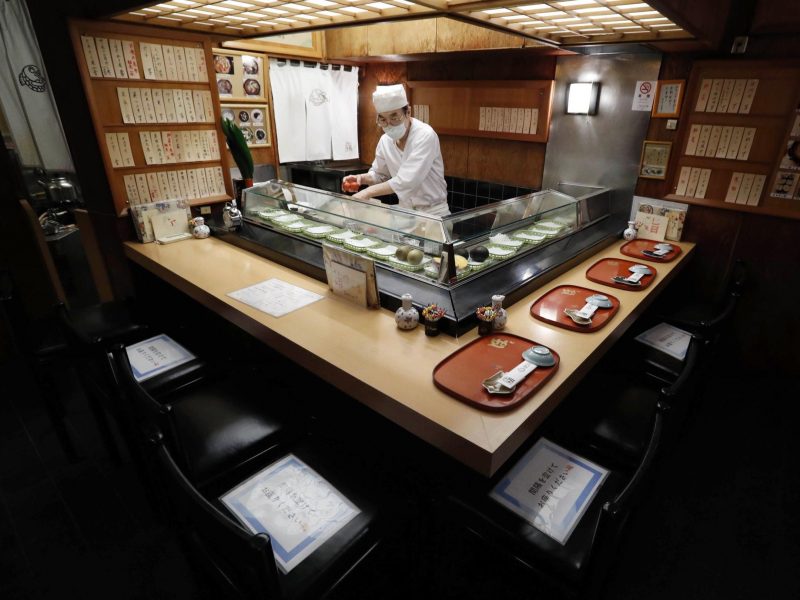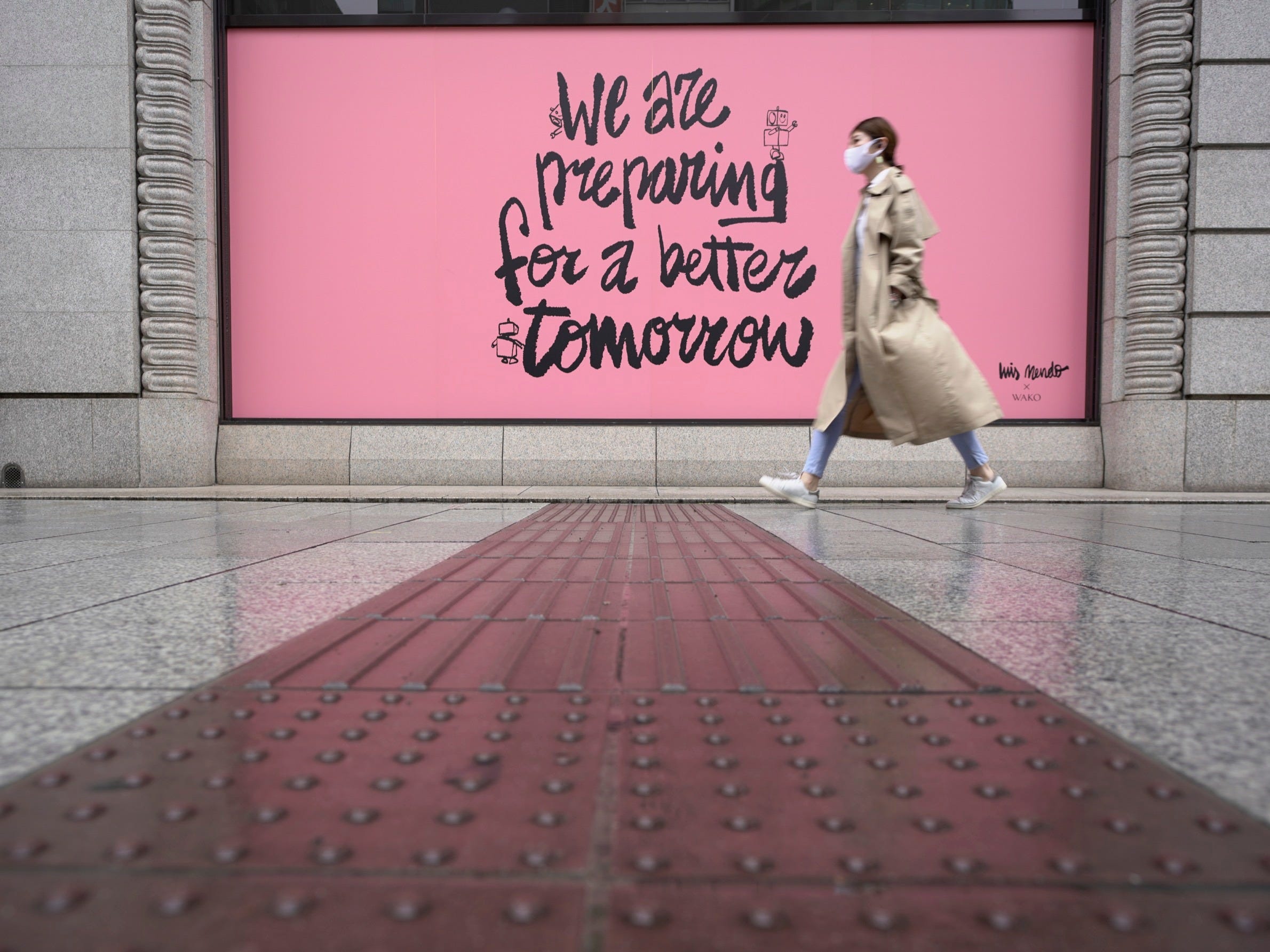- On Monday, Tokyo lifted its state of emergency after the rate of new coronavirus infections and deaths slowed.
- The state of emergency went into effect on April 7 after coronavirus-related deaths exceeded 100 nationwide.
- In a press conference on Monday, Prime Minister Shinzo Abe said that Japan will need to “create a new lifestyle” as it ventures into the post-pandemic world.
- Here’s how three Tokyo industries – restaurants, karaoke bars, and hostess clubs – are adapting.
- Visit Business Insider’s homepage for more stories.
On Monday, Japanese Prime Minister Shinzo Abe lifted Tokyo’s state of emergency after the rate of new coronavirus infections and deaths slowed. The state of emergency, effectively a soft lockdown, went into effect on April 7.

Source: Kyodo News, Government of Japan
While Tokyo encouraged residents to stay home and non-essential stores to close, measures were voluntary. Many restaurants and bars remained open.

Source: Jakarta Post, Foreign Policy
In a press conference on Monday, Prime Minister Shinzo Abe said that Japan will need to “create a new lifestyle” based on social distancing principles in order to reopen the country while preventing a new wave of infections.

Japan has told residents and businesses to avoid the three C’s: closed spaces, crowded places, and close-contact settings.
Source: Japan Times, Washington Post
So far, more than 100 industry associations across Japan have created guidelines for this new lifestyle, the Washington Post reported. Here's how how three industries in Tokyo — restaurants, karaoke bars, and hostess clubs — are adapting.

Source: Washington Post
Restaurants: Before the pandemic, Tokyo residents were able to dine in close proximity at conveyor belt sushi restaurants known as kaitenzushi where they could choose from a rotating selection of fish.

Source: Japan Guide
In March, two of Japan's largest kaitenzushi chains stopped their conveyor belt service, asking customers to order through touchpads instead. Japan's restaurant association also released guidelines encouraging the use of partitions between tables.

Restaurants are now encouraging diners to avoid face-to-face dining and listen to background music in order to minimize talking, the Washington Post reported.
While some restaurant-goers have not heeded social distancing guidelines by continuing to dine in close proximity, they are the minority, The New York Times' Tokyo bureau chief Motoko Rich observed in late April.
"Tokyo is a place where people follow rules. They wait for green lights to cross streets. In subway stations, they board escalators single file," Rich wrote.
"Some social distancing is also built into the culture. We bow rather than shake hands. Hugging is rare," she added.
Source: Fortune, Japan Times
Karaoke bars: Karaoke is a popular Tokyo pastime. Typically, groups of people share microphones, music selection touchpads, and tambourines in private, windowless karaoke rooms.

Source: Japan Guide
Karaoke bars have been closed since early April and no date has been set for when they will reopen. When they do, they have been advised to ventilate rooms, operate at half capacity, and sanitize microphones and touch pads frequently. Customers will be asked to wear masks at all times except when singing and eating.

Source: The Guardian, NHK World-Japan
Hostess clubs: Hostess clubs, a staple of Tokyo nightlife, employ well-dressed female staff members to sit with, talk to, and pour drinks for male customers.

Source: Live Japan
In order to adapt to the new normal, Japan's hostess club association has announced guidelines that require customers and staff to remain at least one seat's distance apart and wear masks at all times except for eating and drinking.

Source: The Tokyo Reporter, Mizusyobai.jp
